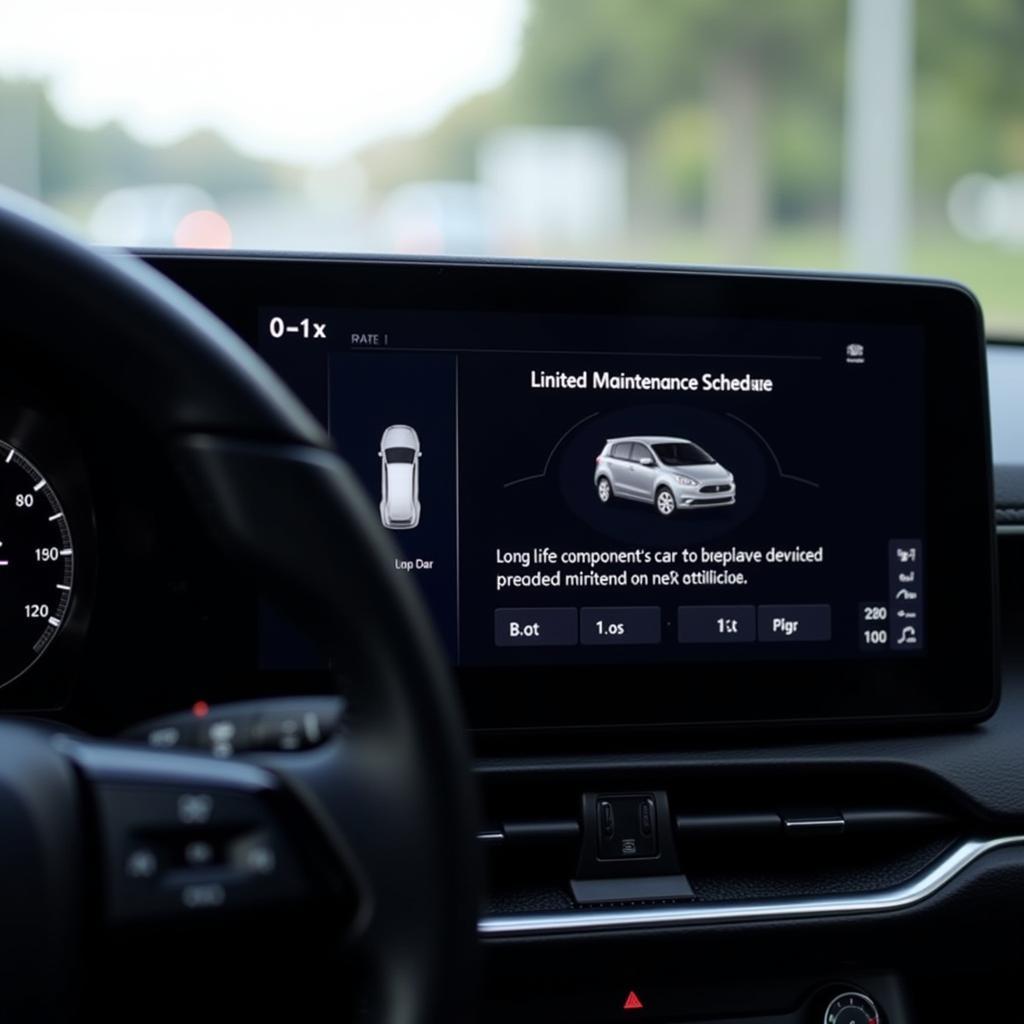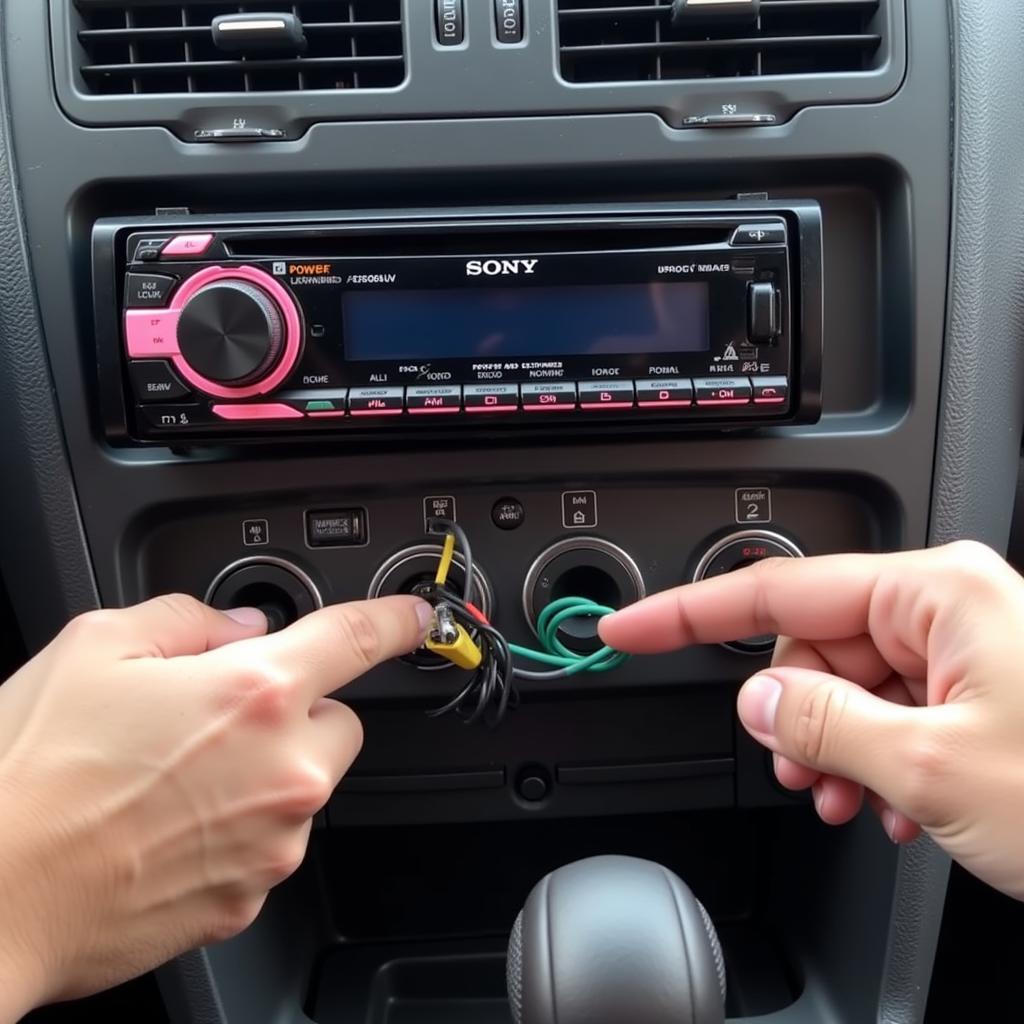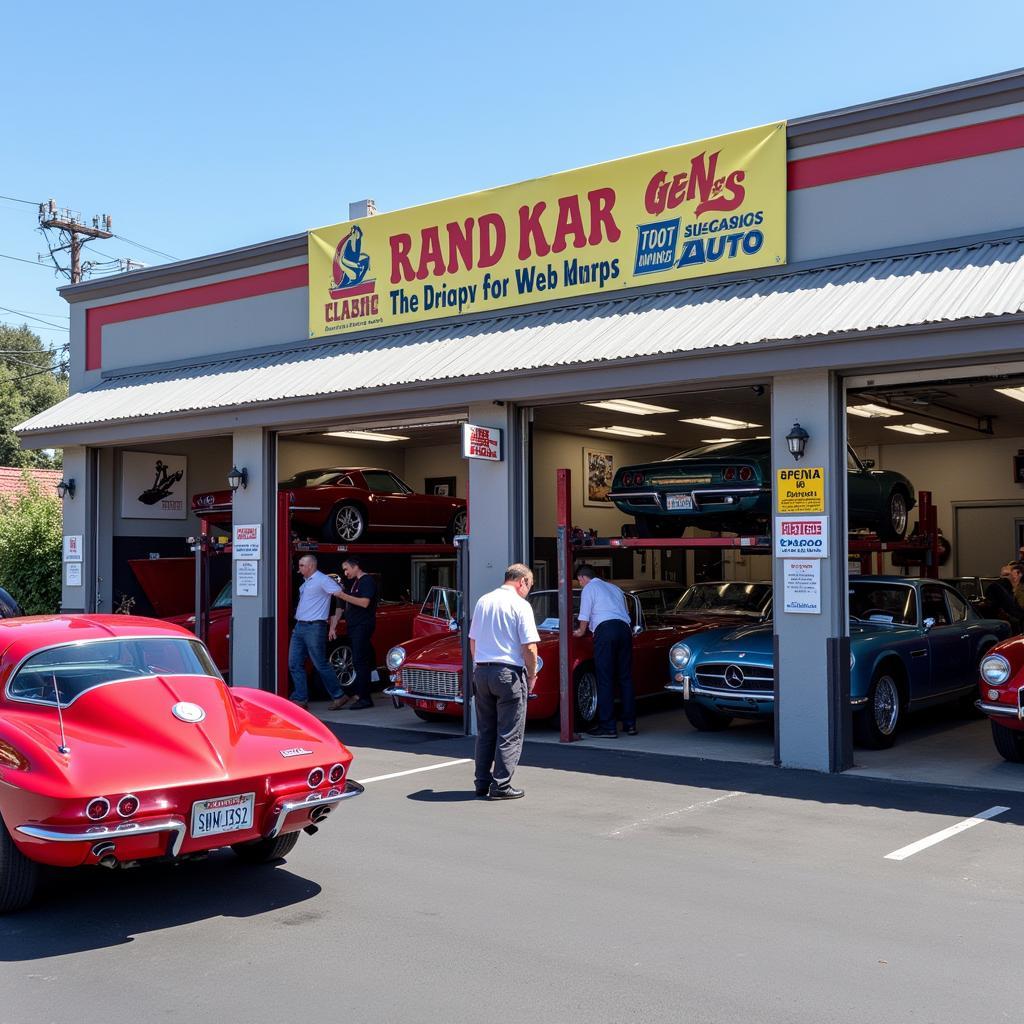Car Maintenance In Chinese can seem daunting, especially if you’re unfamiliar with the language or the specific terms used. This guide will break down the essential aspects of car maintenance, providing valuable insights and practical tips to keep your vehicle in top condition, whether you’re a car owner, a mechanic, or a technician.
Understanding the Basics of Car Maintenance in Chinese
Regular car maintenance is crucial for ensuring safety, reliability, and longevity. Whether you’re driving in China or simply want to understand the terminology, knowing the basics is a great starting point. This section covers essential terms and practices.
Key Terminology for Car Maintenance in Chinese
Learning some basic Chinese vocabulary related to car maintenance can be incredibly helpful. Here are a few important terms:
- 汽车保养 (qìchē bǎoyǎng): Car maintenance
- 发动机 (fādòngjī): Engine
- 机油 (jīyóu): Engine oil
- 轮胎 (lúntāi): Tires
- 刹车 (shāchē): Brakes
Knowing these terms will make communicating with mechanics or understanding Chinese car manuals much easier. Even basic knowledge can make a significant difference in your car maintenance experience.
Regular Checks and Maintenance Procedures
Regardless of language, the core principles of car maintenance remain the same. Regular checks are essential. This includes checking your engine oil, coolant levels, tire pressure, and brake fluid. Adhering to a regular maintenance schedule, as outlined in your car’s manual, will prevent major issues down the line.
Troubleshooting Common Car Problems: A Bilingual Approach
Understanding how to diagnose and address common car issues is a valuable skill. This section provides a bilingual approach to troubleshooting, incorporating both English and Chinese terminology.
What if My Car Won’t Start? (汽车无法启动 – qìchē wúfǎ qǐdòng)
If your car won’t start, there are several potential culprits. Check the battery, starter, and alternator. In Chinese, you can refer to these as 电池 (diànchí) for battery, 启动器 (qǐdòngqì) for starter, and 交流发电机 (jiāoliú fādiànjī) for alternator.
Dealing with Brake Issues (刹车问题 – shāchē wèntí)
Brake problems can be serious. If you notice any unusual noises or reduced braking power, have your brakes inspected immediately. Knowing how to say 刹车有问题 (shāchē yǒu wèntí) – “There’s a problem with the brakes” – can be crucial in communicating with a Chinese mechanic.
Preventative Maintenance: The Key to Long-Term Car Health (预防性维护 – yùfáng xìng wéihù)
Preventative maintenance is the best way to keep your car running smoothly and avoid costly repairs. This involves regular servicing, timely part replacements, and addressing minor issues before they escalate.
The Importance of Regular Oil Changes (定期更换机油 – dìngqí gēnghuàn jīyóu)
Regular oil changes are crucial for engine health. Using the correct type of oil, specified in your car’s manual, is essential. Knowing how to say 换机油 (huàn jīyóu) – “change the oil” – can be helpful when scheduling maintenance.
Tire Maintenance and Rotation (轮胎维护和旋转 – lúntāi wéihù hé xuánzhuǎn)
Proper tire maintenance includes checking tire pressure, tread depth, and regular rotation. This ensures even wear and tear and extends the life of your tires. Remember, well-maintained tires contribute significantly to road safety.
“Regular maintenance is like investing in your car’s future,” says Li Wei, a seasoned mechanic in Beijing. “It’s always better to prevent a problem than to fix it.”
Another expert, Zhang Ming, an automotive engineer in Shanghai, adds, “Understanding basic Chinese car maintenance terms can empower you to communicate effectively and ensure your car receives the proper care.”
Conclusion: Keeping Your Car in Top Shape with Car Maintenance in Chinese
Mastering the basics of car maintenance in Chinese can be a valuable asset, whether you’re living in China or simply want to expand your automotive knowledge. By understanding key terminology and following preventative maintenance practices, you can keep your car running smoothly for years to come. Remember, regular checks, timely repairs, and open communication with mechanics are crucial for optimal car health.
Need further assistance with car maintenance? Connect with us at AutoTipPro. We’re here to help! Call us at +1 (641) 206-8880 or visit our office at 500 N St Mary’s St, San Antonio, TX 78205, United States.







Leave a Reply